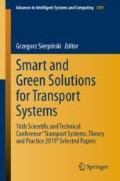Abstract
Electric vehicle technologies are attractive alternatives to traditional vehicles towards achieving sustainable transportation. The adoption of these technologies has a great potential in reducing road transportation externalities. As Qatar aims to achieve 10% electric vehicles by 2030, this research reveals the macro-level environmental, social, and economic impacts and benefits of electric vehicles in Qatar. The studied vehicle technologies are, gasoline vehicle (ICV), hybrid electric vehicle (HEV), plug-in hybrid electric vehicle (PHEV), and battery electric vehicle (BEV). In this regard, we quantified 9 macro level indicators using Multi regional input-output (MRIO)-based life cycle sustainability assessment (LCSA) framework and compared the vehicles accordingly. The results show that, electric vehicles are better options in terms of Global Warming Potential (GWP), Particulate Matter Formation (PMF), and Photochemical Ozone Formation (POF) impacts. In addition to that, the results demonstrated that electric vehicles are more cost effectives than the traditional ones, while they are worse than traditional vehicles in terms of employment, operating surplus, and Gross Domestic Product (GDP) impacts.
Access this chapter
Tax calculation will be finalised at checkout
Purchases are for personal use only
References
Yuksel, T., Tamayao, M.A.M., Hendrickson, C., Azevedo, I.M., Michalek, J.J.: Effect of regional grid mix, driving patterns and climate on the comparative carbon footprint of gasoline and plug-in electric vehicles in the United States. Environ. Res. Lett. 11(4), 044007 (2016)
Bicer, Y., Dincer, I.: Comparative life cycle assessment of hydrogen, methanol and electric vehicles from well to wheel. Int. J. Hydrogen Energy 42, 3767–3777 (2017)
Qatar General Electricity and Water Corporation. MoU signed to launch Green Car Initiative (2017)
Qatar Green Leaders. The Next Big Obstacle for Electric Vehicles? Charging Infrastructure (2017). http://www.qatargreenleaders.com/news/sustainability-news/1438-the-next-big-obstacle-for-electric-vehicles-charging-infrastructure. Accessed 12 Dec 2017
The Ministry of Development Planning and Statistics. Qatar National Vision 2030 (2018)
Our World in Data CO2 and other Greenhouse Gas Emissions (2019)
JustHere Doha. Doha 12th most polluted city in the world; possible causes are higher air traffic and growing population (2014). http://www.justhere.qa/2014/05/doha-among-worlds-polluted-cities-higher-air-traffic-population-levels-may-causal-agents/
Qatar Rail. Qatar Rail Annual Report 2015–2016 (2016)
Guinée, J.: Life cycle sustainability assessment: what is it and what are its challenges? In: Taking Stock of Industrial Ecology, pp. 45–68. Springer, Cham (2016)
Guinee, J.B., Heijungs, R., Huppes, G., Zamagni, A., Masoni, P., Buonamici, R., Ekvall, T., Rydberg, T.: Life cycle assessment: past, present, and future †. Environ. Sci. Technol. 45, 90–96 (2011)
Onat, N.C., Kucukvar, M., Halog, A., Cloutier, S.: Systems thinking for life cycle sustainability assessment: a review of recent developments, applications, and future perspectives. Sustainability 9, 706 (2017)
Onat, N.C., Kucukvar, M., Tatari, O.: Towards life cycle sustainability assessment of alternative passenger vehicles. Sustainability 6, 9305–9342 (2014)
Onat, N.C., Kucukvar, M., Tatari, O., Egilmez, G.: Integration of system dynamics approach toward deepening and broadening the life cycle sustainability assessment framework: a case for electric vehicles. Int. J. Life Cycle Assess. 21, 1009–1034 (2016)
Acknowledgment
This paper is an output of a project supported by Qatar University, grant number QUSD-CENG-2018\2019-2.
Author information
Authors and Affiliations
Corresponding author
Editor information
Editors and Affiliations
Rights and permissions
Copyright information
© 2020 Springer Nature Switzerland AG
About this paper
Cite this paper
Aboushaqrah, N.N.M., Onat, N.C., Kucukvar, M., Jabbar, R. (2020). Life Cycle Sustainability Assessment of Sport Utility Vehicles: The Case for Qatar. In: Sierpiński, G. (eds) Smart and Green Solutions for Transport Systems. TSTP 2019. Advances in Intelligent Systems and Computing, vol 1091. Springer, Cham. https://doi.org/10.1007/978-3-030-35543-2_22
Download citation
DOI: https://doi.org/10.1007/978-3-030-35543-2_22
Published:
Publisher Name: Springer, Cham
Print ISBN: 978-3-030-35542-5
Online ISBN: 978-3-030-35543-2
eBook Packages: Intelligent Technologies and RoboticsIntelligent Technologies and Robotics (R0)

